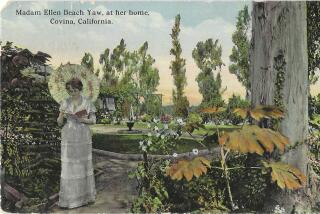Portrait of a private woman: the real Alice Faye
- Share via
Alice Faye, who died at 83 in 1998, was a cherished star of Hollywood musicals in the late 1930s and early ‘40s who stayed in the public eye almost until her death, even though she walked out on a flourishing movie career in 1945. A beautiful blue-eyed blond with a stunning figure, a warm personality and low singing voice, she brought a sultry quality to the screen.
In a mere six years at 20th Century Fox, Faye became America’s No. 1 female box office star. Her talent and natural appeal shone through formulaic Fox musicals like “Alexander’s Ragtime Band,” “Rose of Washington Square,” “Lillian Russell” and “Tin Pan Alley.”
When Faye married the brash bandleader-comedian Phil Harris, Hollywood said it wouldn’t last, but the couple, who had two daughters, had been happily married 54 years when he died in 1995 at age 90. They were a handsome pair who aged gracefully and left their friends and fans with fond memories.
Jane Lenz Elder’s illuminating “Alice Faye: A Life Beyond the Silver Screen” is not the standard movie star biography dripping with nostalgia and shameless heart-tugging. It is a full-length portrait of an essentially private woman long on common sense and inner strength, one who was grateful for the opportunities that came her way and who learned over time how to stand up for herself.
Alice Jeane Leppert was born on May 5, 1915, in a cold-water flat in Manhattan’s Hell’s Kitchen. Her father was a policeman, and her mother took factory jobs to help support their daughter and two older sons. Faye told musical historian Miles Kreuger bluntly that “if you were pretty, and you grew up on Double Fifth Avenue, you either hit the stage or the streets.”
She got her first job at 12 working in the dressing room at a dancing school; the next year, lying about her age, she landed in the chorus of Earl Carroll’s Vanities, moved on to the Capitol Theater and caught the attention of radio star-restaurateur Niles T. Granlund. At 17 Faye got her first taste of celebrity as a singer on Rudy Vallee’s popular radio program. Vallee became her mentor, which incited his wife’s jealousy, and for the rest of her life she denied having an affair with him. Radio singing stardom led to an offer from Fox in 1934. Elder makes clear that Darryl F. Zanuck was quick to exploit Faye’s popularity; she once called the studio Penitentiary Fox.
Elder suggests that a turning point in Faye’s life and career occurred when she fell in love with fellow Fox contractee Tony Martin and married him in 1937, just when her career was at its busiest. He was often on the road, and the Martins were together only eight months of their 28-month marriage.
Although Faye would never say more than “the marriage simply didn’t work out,” Elder writes that Faye took the failure of the marriage hard, and began to question her priorities and resist Zanuck’s demands. Even though she became determined to put her second marriage first, she continued with her career.
She had gotten her big break as a dramatic actress when Jean Harlow, who was to star in Fox’s “In Old Chicago” on loan from MGM, died at age 26. Faye saw her chance in Otto Preminger’s murder mystery “Fallen Angel,” in which she played a small-town heiress almost past her prime, but Zanuck, with whom she sparred increasingly over the years, cut her part drastically to build up newcomer Linda Darnell. Faye took one look at the finished film, wrote Zanuck an unprintable note and left the studio, not to return for more than 15 years, an act unheard of for a star in Hollywood’s golden age.
Elder writes that the resilient Faye may have disappeared from the screen but not to the obscurity of domesticity, as important as that became to her. The next year she returned to radio, and she and Harris did a weekly program until 1954. Elder regrets that Faye did not do more recording.(Faye’s unforgettable rendition of “You’ll Never Know” became a World War II anthem.)
During the next decades, Faye performed occasionally and in 1973 returned to the stage in a revival of the musical “Good News.” In the 1980s she became a spokeswoman for Pfizer.
Elder allows us to see that Faye was indeed “an elegant lady whose greatest riches were her friends, fans and daughters and who gave her audiences much to enjoy.”
More to Read
The biggest entertainment stories
Get our big stories about Hollywood, film, television, music, arts, culture and more right in your inbox as soon as they publish.
You may occasionally receive promotional content from the Los Angeles Times.










